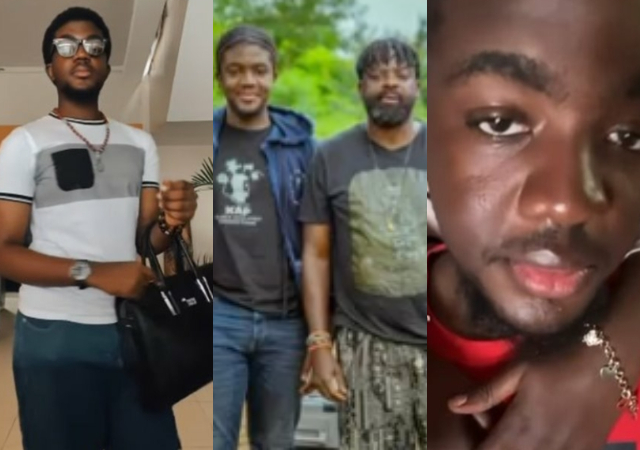Dieko Afolayan, son of renowned Nollywood filmmaker Kunle Afolayan, finds himself at the center of a social media maelstrom. A series of videos showcasing Dieko’s behavior have ignited a firestorm of speculation about his sexuality, prompting the young man to respond in a way that has only intensified the public discourse. This incident raises important questions about privacy, social media culture, and the pressure faced by children of celebrities in the digital age.
The controversy began when a video of Dieko displaying what some viewers described as “feminine behavior” went viral on social media platforms. The clip, which spread rapidly across Nigerian social media circles, showed Dieko in a casual setting, his mannerisms and gestures becoming the subject of intense scrutiny and speculation.
As if one viral moment wasn’t enough to fuel the rumor mill, a second video emerged shortly after. This clip, reportedly from Dieko’s school life, further fanned the flames of gossip and conjecture about his sexual orientation. The rapid spread of these videos highlights the speed at which information and misinformation can travel in today’s interconnected digital landscape.
In an apparent attempt to quell the growing rumors, Dieko took to TikTok with a video of his own. The clip featured the young Afolayan with a young woman who gently caressed his face and beard. While likely intended to put an end to the speculation, this response has instead sparked a new wave of commentary and analysis from netizens.
The response to Dieko’s TikTok video has been swift and varied, with social media users dissecting every aspect of the interaction. Some of the reactions highlight the intense scrutiny that public figures, especially those associated with celebrities, face in the digital age.
User okanlawon1805 cryptically remarked, “Make una check well na boy still dey hes back,” suggesting a level of skepticism about the video’s intent. Meanwhile, obihood1 focused on Dieko’s demeanor, commenting, “He looks uncomfortable he ain’t used to female touches 
These reactions underscore the challenge of managing public perception in an era where every gesture, expression, and interaction is subject to analysis and interpretation.
As the son of Kunle Afolayan, one of Nollywood’s most respected filmmakers, Dieko carries the weight of a significant legacy. This incident sheds light on the unique pressures faced by children of celebrities, particularly in conservative societies where discussions about sexuality remain taboo.
While social media platforms offer unprecedented opportunities for self-expression and connection, they also expose individuals to rapid-fire judgment and speculation. The speed at which the videos of Dieko spread, and the quick formation of public opinion, demonstrate both the power and peril of these digital spaces.
Beyond the specifics of Dieko’s situation, this incident has sparked broader discussions about sexuality, gender expression, and societal expectations in Nigeria. The range of reactions to the videos and Dieko’s response reflect the diverse and often conflicting views on these issues within Nigerian society.
Some comments, like that from user theonlyfolakeiknow who wrote, “Nobody said gay people dont like women, its just that they like men a little bit too much..” hint at the complexities of discussing sexuality in a society where LGBTQ+ issues remain controversial.
As this story unfolds, it’s worth considering the role that celebrities and their families play in shaping public discourse on sensitive topics. Whether intentional or not, incidents like this often become focal points for larger societal discussions.
As the dust settles on this social media storm, questions remain about how Dieko Afolayan and his family will navigate the aftermath. Will they choose to address the speculation directly, or opt for a strategy of silence? How will this incident impact Dieko’s public persona moving forward?
More broadly, this situation invites reflection on how society treats young people in the public eye, especially when it comes to sensitive topics like sexuality. It challenges us to consider the ethics of speculating about someone’s personal life based on snippets of video or social media posts.
While undoubtedly challenging for Dieko and his family, this incident provides a valuable teachable moment for society at large. It highlights the need for more nuanced discussions about sexuality, gender expression, and the right to privacy in the digital age.
As Nigeria continues to grapple with these complex issues, stories like Dieko’s serve as important catalysts for dialogue and reflection. They challenge us to examine our assumptions, question our judgments, and consider the human impact of our online behaviors.
In the end, regardless of the truth behind the speculation, Dieko Afolayan’s experience stands as a stark reminder of the power of social media to shape narratives and the responsibility that comes with wielding that power. As the conversation continues to evolve, one can hope that it leads to greater understanding, empathy, and respect for individual journeys of self-discovery and expression.




